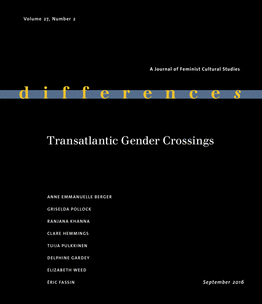
India – Gender in Medical Education: Perceptions of Medical Educators
The study findings point to the need for a nuanced understanding of gender among medical educators and students. The introduction of gender could pave the way for an opening up of medicine to delve deeper into how signifiers such as class, caste, gender etc. have a bearing on health. The medical curriculum and training must undergo fundamental changes to integrate gender so as to ensure the creation of a gender-sensitive and socially-relevant medical force in the country.

The Uruguayan experience on preventing unsafe abortions
The volume 134 (August 2016) of the International Journal of Gynecology & Obstetrics brings the special issue “Reducing Maternal Mortality by Preventing Unsafe Abortion: The

Bulletin on Sexual and Reproductive Health and Rights and the Internet
Guest-edited by Tactical Tech, the 2016 AFC bulletin includes contributions from 16 sexual and reproductive health and rights (SRHR) and tech activists, researchers, and writers, who explore the relationships and interdependencies influencing the promises of being online: voice, visibility, and power; and look at the possibilities offered by technologies to SRHR work, amidst challenges related to access, the corporatisation of the internet, collusion between governments and technology companies, censorship, violations of privacy, sexism, and violence, amongst others.

Why don’t humanitarian organizations provide safe abortion services?
Although sexual and reproductive health services have become more available in humanitarian settings over the last decade, safe abortion services are still rarely provided. The authors’ observations suggest that four reasons are typically given for this gap: ‘There’s no need’; ‘Abortion is too complicated to provide in crises’; ‘Donors don’t fund abortion services’; and ‘Abortion is illegal’.

Literature Review of LGBT Youth in Pakistan
NAZ Pakistan is committed to working with youth who identify as sexual and gender minorities. As a first step to establish a baseline, the technical
differences’ new issue: Transatlantic Gender Crossings
The most recent issue of differences, “Transatlantic Gender Crossings,” edited by Anne Emmanuelle Berger and Éric Fassin, addresses French and US feminism, gender, and queer

Kohl’s new issue: Beyond Victims and Savages – The Complexities of Violence, Resistance, and Pleasure
Going beyond the dichotomy of victims and savages entails a nuanced understanding of violence. Such an understanding perceives mainstream violence as indivisible from other paradigms of large-scale oppression – hegemony, socioeconomic injustice, institutionalization, neoliberalism, occupation… It also accounts for the normalized violence we live on a daily basis, in silent acts of coercion, harassment, bullying, and self-damage, and the ways in which they are informed by macro instances of violence, and vice versa.

Research Study in Canada Shows Needs of Rural Sex Workers
On the 20th of May in Brantford, Ontario (Canada), a report was released by Dr. Stacey Hannem and the organisation REAL that assesses the needs

How Many Adults Identify as Transgender in the United States – The Williams Institute
Utilizing data from the 2014 Behavioral Risk Factor Surveillance System (BRFSS), which includes representative state-level surveys, Williams Institute scholars provide up-to-date estimates of the percentage and number of adults who identify as transgender in the United States. Approximately 0.6% of adults in the United States, or 1.4 million individuals, identify as transgender.

A Development Agenda for Sexual and Gender Minorities
A Development Agenda for Sexual and Gender Minorities, by Andrew Park, International Program Director, The Williams Institute, UCLA School of Law is grounded in current research literature regarding important development outcomes for sexual and gender minorities, such as health, employment, family formation, education and civil participation.

